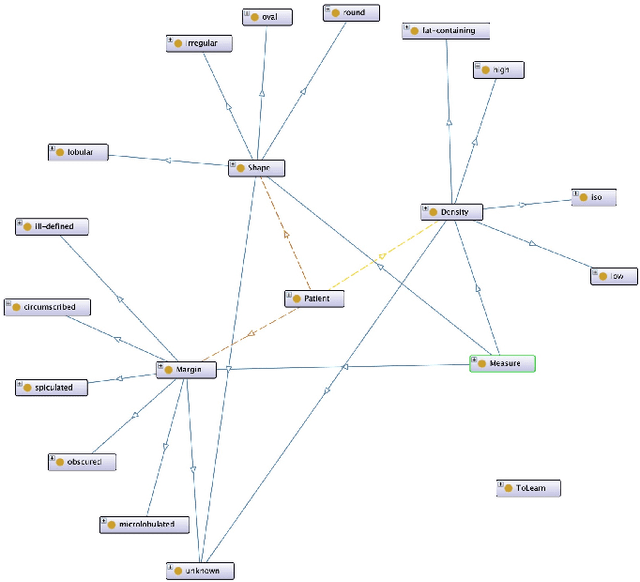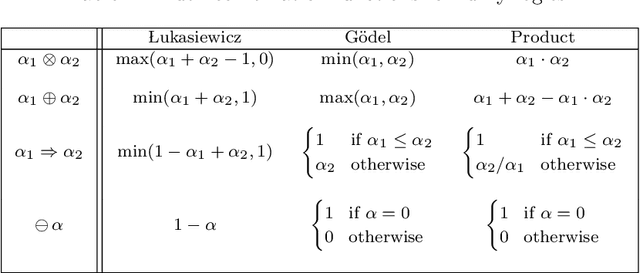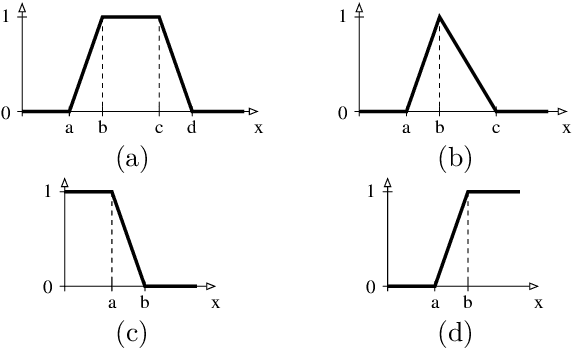Franca Debole
PN-OWL: A Two Stage Algorithm to Learn Fuzzy Concept Inclusions from OWL Ontologies
Mar 01, 2023



Abstract:OWL ontologies are a quite popular way to describe structured knowledge in terms of classes, relations among classes and class instances. In this paper, given a target class T of an OWL ontology, with a focus on ontologies with real- and boolean-valued data properties, we address the problem of learning graded fuzzy concept inclusion axioms with the aim of describing enough conditions for being an individual classified as instance of the class T. To do so, we present PN-OWL that is a two-stage learning algorithm made of a P-stage and an N-stage. Roughly, in the P-stage the algorithm tries to cover as many positive examples as possible (increase recall), without compromising too much precision, while in the N-stage, the algorithm tries to rule out as many false positives, covered by the P-stage, as possible. PN-OWL then aggregates the fuzzy inclusion axioms learnt at the P-stage and the N-stage by combining them via aggregation functions to allow for a final decision whether an individual is instance of T or not. We also illustrate its effectiveness by means of an experimentation. An interesting feature is that fuzzy datatypes are built automatically, the learnt fuzzy concept inclusions can be represented directly into Fuzzy OWL 2 and, thus, any Fuzzy OWL 2 reasoner can then be used to automatically determine/classify (and to which degree) whether an individual belongs to the target class T or not.
The VISIONE Video Search System: Exploiting Off-the-Shelf Text Search Engines for Large-Scale Video Retrieval
Aug 06, 2020



Abstract:In this paper, we describe VISIONE, a video search system that allows users to search for videos using textual keywords, occurrence of objects and their spatial relationships, occurrence of colors and their spatial relationships, and image similarity. These modalities can be combined together to express complex queries and satisfy user needs. The peculiarity of our approach is that we encode all the information extracted from the keyframes, such as visual deep features, tags, color and object locations, using a convenient textual encoding indexed in a single text retrieval engine. This offers great flexibility when results corresponding to various parts of the query needs to be merged. We report an extensive analysis of the system retrieval performance, using the query logs generated during the Video Browser Showdown (VBS) 2019 competition. This allowed us to fine-tune the system by choosing the optimal parameters and strategies among the ones that we tested.
 Add to Chrome
Add to Chrome Add to Firefox
Add to Firefox Add to Edge
Add to Edge